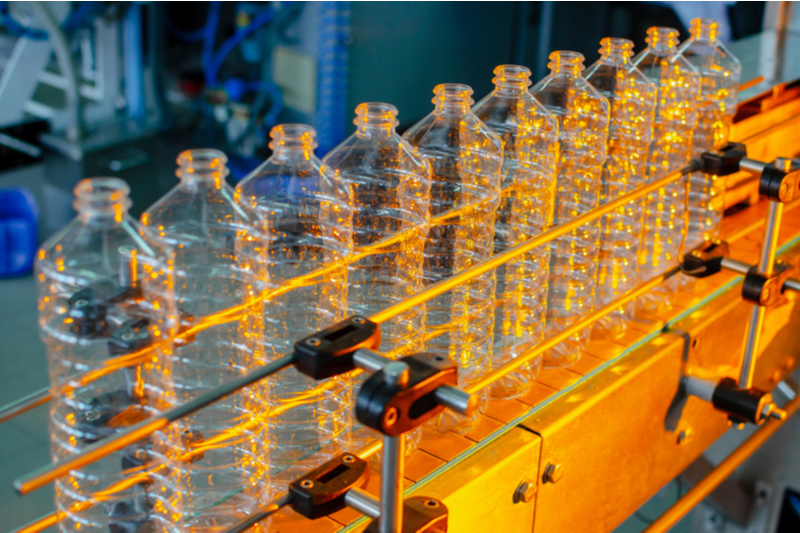LanzaTech-Danone consortium discovers method to produce sustainable PET bottles from captured carbon


The carbon capture technology uses a proprietary engineered bacterium to convert carbon emissions directly into MEG through fermentation.
Image: Shutterstock/Salov Evgeniy
A consortium, including LanzaTech and Danone have discovered a new route to monoethylene glycol, (MEG), which is a key building block for polyethylene terephthalate, (PET) bottles.
LanzaTech harnesses the power of biology and big data to create climate-safe materials and fuels.
The technology converts carbon emissions from steel mills or gasified waste biomass directly into MEG. The carbon capture technology uses a proprietary engineered bacterium to convert carbon emissions directly into MEG through fermentation, bypassing the need for an ethanol intermediate, and simplifying the MEG supply chain.
The direct production of MEG was proven at laboratory scale and the presence of MEG was confirmed by two external laboratories.
Dr. Jennifer Holmgren, CEO of LanzaTech said the breakthrough in the production of sustainable PET has vast potential to reduce the overall environmental impact of the process.
“This is a technological breakthrough which could have significant impact, with applications in multiple sectors, including packaging and textiles,” Holmgren added.
While there is no organism in nature known to produce MEG, through this proof-of-concept stage, LanzaTech has used synthetic biology and AI tools to discover multiple novel pathways to make MEG directly from carbon emissions.
By combining and prototyping various sets of enzymes identified from different sources in novel ways, LanzaTech has reprogrammed its ethanol producing bacteria to fix and channel carbon into MEG.
According to LanzaTech, this early-stage proof of concept work shows for the first time that it is possible for a bacterium to directly produce MEG from gas. By producing MEG directly, the new technology avoids the multiple processing steps required to convert ethanol into ethylene, then ethylene oxide and then to MEG.
The carbon capture and transformation company anticipates that when scaled successfully after a multiyear development phase, the direct production process will lead to PET bottles and PET fibres with a reduced environmental impact.
LanzaTech is partnering with leading companies to improve the environmental impact of packaging. Given the success of this proof-of-concept phase, LanzaTech, with the support of Danone, plans to continue the scale-up phase of its direct-to-MEG technology.
“We have been working with LanzaTech for years and strongly believe in the long-term capacity of this technology to become a game changer in the way to manage sustainable packaging materials production. This technological collaboration is a key enabler to accelerate the development of this promising technology,” said Pascal Chapon, Danone R&I advanced techno materials director.
Related content
Source: foodanddrinktechnology.com

